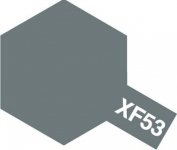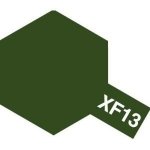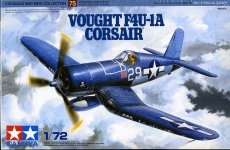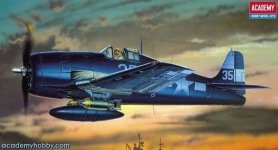-
Załączniki bezpieczeństwa
Załczniki do produktuZałączniki dotyczące bezpieczeństwa produktu zawierają informacje o opakowaniu produktu i mogą dostarczać kluczowych informacji dotyczących bezpieczeństwa konkretnego produktu
-
Informacje o producencie
Informacje o producencieInformacje dotyczące produktu obejmują adres i powiązane dane producenta produktu.Hobby Boss
-
Osoba odpowiedzialna w UE
Osoba odpowiedzialna w UEPodmiot gospodarczy z siedzibą w UE zapewniający zgodność produktu z wymaganymi przepisami.INTERNATIONAL BUSINESS GROUPBENEDYKTA HERTZA 2Warszawa,04 - 603Polska
Hobby Boss 87267 F8F-1 Bearcat 1/72
Plastikowy model samolotu do sklejania. Zestaw nie zawiera kleju ani farb.
Grumman F8F Bearcat – amerykański myśliwski samolot pokładowy z końcowego okresu II wojny światowej, był to ostatni myśliwiec produkcji Grummana napędzany silnikiem tłokowym. „Bearcat” to binturong, niewielki ssak z rodziny łaszowatych.
Został zaprojektowany jako myśliwiec przechwytujący. Od początku planowano wykorzystanie silnika Pratt & Whitney Double Wasp, przed zespołem projektowym postawiono zadanie stworzenia jak najmniejszego i najlżejszego samolotu z tym silnikiem, ale uzbrojonego w działko 20 mm. W porównaniu ze swoim poprzednikiem, F6F Hellcat, Bearcat był o 20% lżejszy, jego prędkość wznoszenia wzrosła o jedną trzecią, a prędkość maksymalna o 80 km/h. Współczesny mu Vought F4U Corsair był nieco szybszy, ale F8F był lepiej uzbrojony, bardziej zwrotny i miał lepszą prędkość wznoszenia. Wiele z rozwiązań konstrukcyjnych zastosowanych w tym samolocie zostało zainspirowanych lub wprost skopiowanych ze zdobycznego myśliwca niemieckiego Focke-Wulf Fw 190.
F8F został zamówiony w listopadzie 1943, lot pierwszego prototypu odbył się 21 sierpnia 1944 – zaledwie 9 miesięcy później. Pierwsze egzemplarze produkcyjne zostały dostarczone do dywizjonów w lutym 1945 i pierwszy dywizjon wyposażony w te samoloty wszedł do służby 21 maja ale nie zdążył on wziąć udziału w żadnej akcji bojowej przed zakończeniem wojny.
W okresie powojennym F8F został głównym myśliwcem US Navy, używany był przez 24 dywizjony. Osiągi Bearcata były znacznie lepsze od większości ówczesnych modeli samolotów odrzutowych. Następcą F8F został Grumman F9F Panther.
Do czasów obecnych przetrwało sporo egzemplarzy tego samolotu z czego około 11 może nadal latać. Bearcaty były popularnymi samolotami wyścigowymi, do jednego z nich, „Rare Bear” którego właścicielem jest Lyle Shelton, należy rekord świata w średniej prędkości na trasie 3 km dla samolotów śmigłowych – 850,25 km/h.
The Grumman F8F Bearcat is an American single-engine carrier-based fighter aircraft introduced in late World War II. It served during the mid-20th century in the United States Navy, the United States Marine Corps, and the air forces of other nations. It was Grumman Aircraft's last piston engined fighter aircraft.
Modified versions of the Bearcat have broken speed records for piston-engined aircraft. Today, the Bearcat is popular among warbird owners and air racers.
The Bearcat concept began during a meeting between Battle of Midway veteran F4F Wildcat pilots and Grumman Vice President Jake Swirbul at Pearl Harbor on 23 June 1942. At the meeting, Lieutenant Commander Jimmie Thach emphasized one of the most important requirements in a good fighter plane was "climb rate".
Climb performance is strongly related to the power-to-weight ratio, and is maximized by wrapping the smallest and lightest possible airframe around the most powerful available engine. Another goal was that the G-58 (Grumman's design designation for the aircraft) should be able to operate from escort carriers, which were then limited to the obsolescent F4F Wildcat as the Grumman F6F Hellcat was too large and heavy. A small, lightweight aircraft would make this possible. After intensively analyzing carrier warfare in the Pacific Theater of Operations for a year and a half, Grumman began development of the G-58 Bearcat in late 1943.
There is considerable debate among sources as to whether or not the Focke-Wulf Fw 190 influenced the design of the G-58. It is known that test pilots from Grumman examined and flew a captured Fw 190 in England in early 1943, and the G-58 has a number of design notes in common with the Fw 190 that the Hellcat did not, especially in the cowling and landing gear arrangements. However, no definitive evidence has been presented that these tests had a direct input to the G-58 design.



















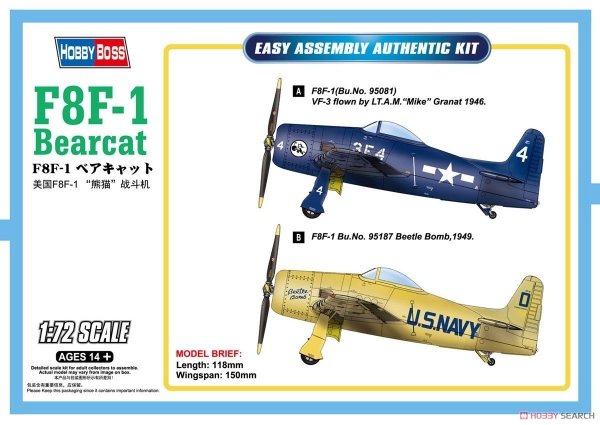
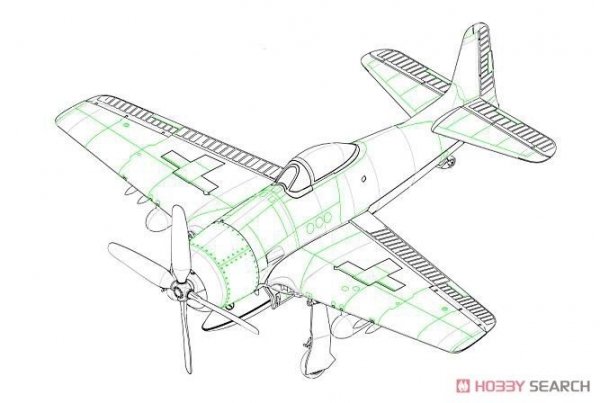
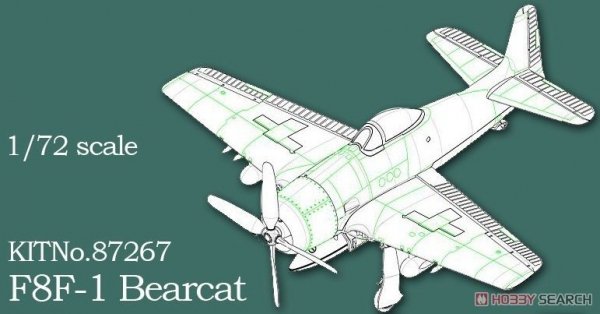
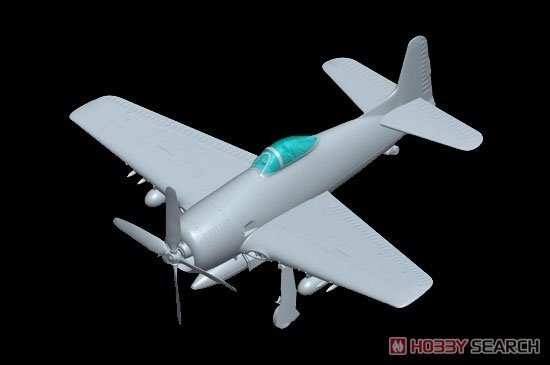
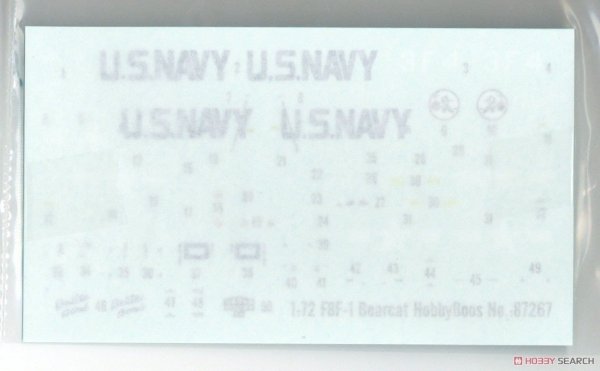
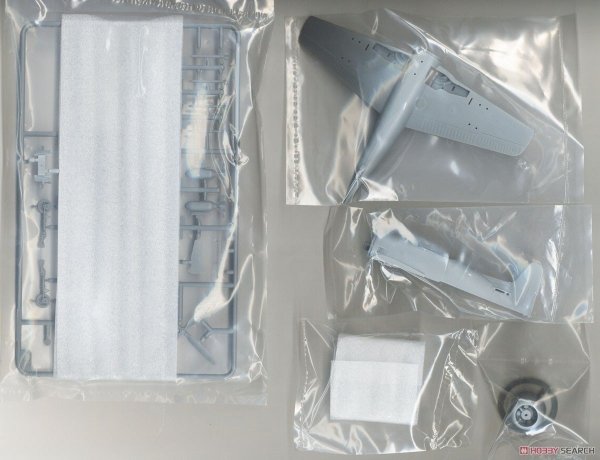


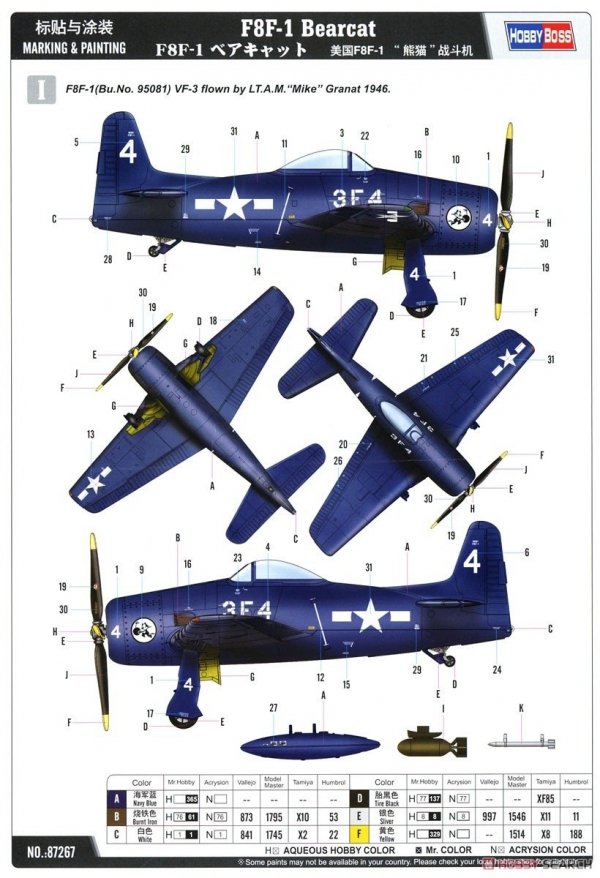
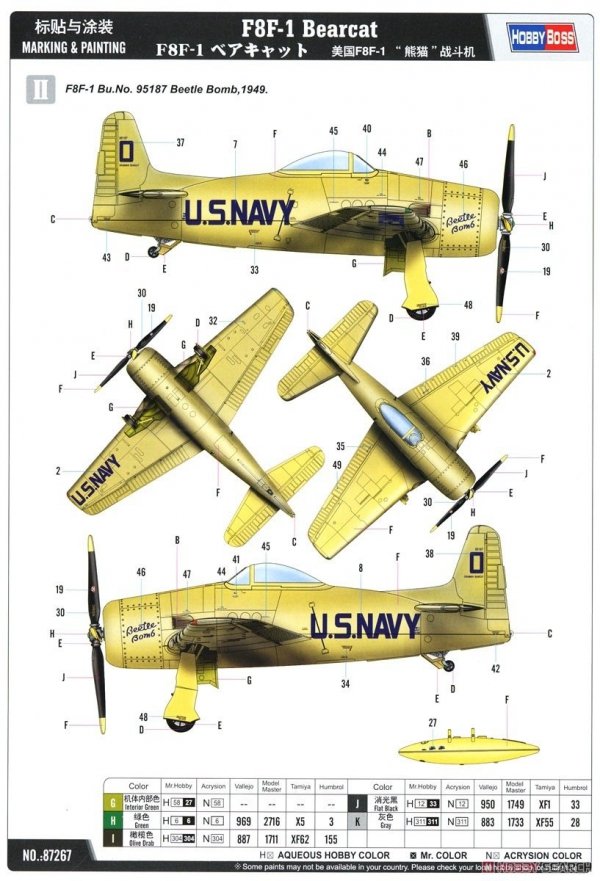
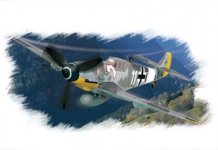
 1 szt.
1 szt.
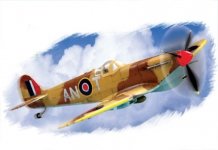
 2 szt.
2 szt.
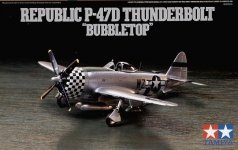
 65 szt.
65 szt.